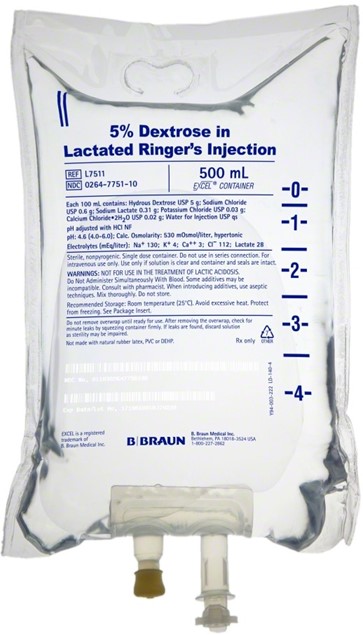A nurse is caring for a client who has hypovolemic shock. Which of the following should the nurse recognize as an expected finding?
Hypertension
Bradypnea
Oliguria
Flushing of the skin
The Correct Answer is C
Choice A Reason: This is incorrect because hypertension is a condition of high blood pressure. A client who has hypovolemic shock is more likely to have hypotension, which is a condition of low blood pressure, due to fluid loss and reduced cardiac output.
Choice B Reason: This is incorrect because bradypnea is a condition of slow breathing. A client who has hypovolemic shock is more likely to have tachypnea, which is a condition of fast breathing, due to hypoxia and increased respiratory demand.
Choice C Reason: This is correct because oliguria is a condition of low urine output. A client who has hypovolemic shock may have oliguria due to decreased renal perfusion and activation of the renin-angiotensin-aldosterone system, which causes sodium and water retention.
Choice D reason: This is incorrect because flushing of the skin is a condition of redness and warmth of the skin. A client who has hypovolemic shock may have pallor and coolness of the skin due to vasoconstriction and reduced blood flow.
Nursing Test Bank
Naxlex Comprehensive Predictor Exams
Related Questions
Correct Answer is D
Explanation
Choice A Reason: Cause of the burn is not the nurse's priority when assessing the severity of the client's burns. The cause of the burn may indicate the type and duration of exposure, such as thermal, chemical, electrical, or radiation, which can affect the depth and extent of injury. However, these factors are secondary to ensuring adequate oxygenation and ventilation.
Choice B Reason: Age of the client is not the nurse's priority when assessing the severity of the client's burns. The age of the client may influence the response to burn injury, such as healing time, infection risk, and fluid requirements.
However, these factors are secondary to ensuring adequate oxygenation and ventilation.
Choice C Reason: Associated medical history is not the nurse's priority when assessing the severity of the client's burns. The associated medical history may affect the outcome and prognosis of burn injury, such as pre-existing conditions, medications, or allergies. However, these factors are secondary to ensuring adequate oxygenation and ventilation.
Choice D Reason: Location of the burn is the nurse's priority when assessing the severity of the client's burns. The location of the burn can indicate the potential for life-threatening complications, such as airway obstruction, inhalation injury, or impaired circulation. The nurse should assess for signs and symptoms of respiratory distress, such as stridor, wheezes, or cyanosis, and prepare for endotracheal intubation if needed. The nurse should also monitor for signs and symptoms of compartment syndrome, such as pain, pallor, paresthesia, pulselessness, or paralysis, and report any findings to the provider. The location of the burn can also affect the functional and cosmetic outcomes, such as vision loss, facial disfigurement, or joint contractures. The nurse should provide appropriate wound care, pain management, and rehabilitation as prescribed. Assessing for location of burn is essential to prevent further injury and preserve vital functions.
Correct Answer is D
Explanation
Choice A Reason: This is incorrect because dextrose 5% in 0.9% sodium chloride is a hypertonic solution that can cause fluid overload and pulmonary edema in a client who has burns.
Choice B Reason: This is incorrect because dextrose 5% in water is a hypotonic solution that can cause fluid shifts from the intravascular space to the interstitial space, resulting in hypovolemia and hypotension in a client who has burns.
Choice C Reason: This is incorrect because 0.9% sodium chloride is an isotonic solution that can cause hypernatremia and hyperchloremia in a client who has burns, as the fluid loss from burns is greater than the sodium loss.
Choice D Reason: This is correct because lactated Ringer's is an isotonic solution that contains electrolytes similar to plasma, such as sodium, potassium, calcium, and chloride. It also contains lactate, which is converted to bicarbonate in the liver and helps correct the metabolic acidosis that occurs in a client who has burns.

Whether you are a student looking to ace your exams or a practicing nurse seeking to enhance your expertise , our nursing education contents will empower you with the confidence and competence to make a difference in the lives of patients and become a respected leader in the healthcare field.
Visit Naxlex, invest in your future and unlock endless possibilities with our unparalleled nursing education contents today
Report Wrong Answer on the Current Question
Do you disagree with the answer? If yes, what is your expected answer? Explain.
Kindly be descriptive with the issue you are facing.
